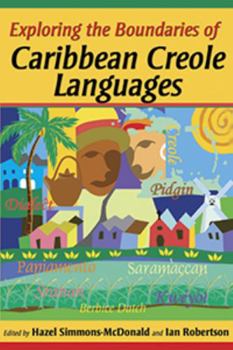Exploring the Boundaries of Caribbean Creole Languages
Select Format
Select Condition 
Book Overview
The contributors to this collection address a range of issues in Caribbean linguistics. At this stage of Caribbean development, it is critical that we have a broader appreciation of the significance of the languages of the region for developing a deeper sense of self and for understanding others who have shared a common Caribbean experience. The linguists in this volume interro-gate the interpretations of the history of our Caribbean languages, the use of these languages for literary expression and their role in the democratization of education and the development of Caribbean people.
Several of the articles deal with profoundly controversial topics, including the question of competence in a Creole environment; the expansion of Rastafarianism globally and how word-formation devices reflect Rastafarian thinking; the use of the vernacular in West Indian education; the relevance of vernacular literacy for education; the use of Creole in Caribbean literary texts; and how to determine dialect boundaries, especially in linguistic situations in which Creoles from two distinct lexical bases vie for social space and supremacy.
The work is dedicated to the distinguished Caribbean linguist Pauline Christie and celebrates her contribution to the study of linguistics in the Caribbean.
Related Subjects
Language Arts




